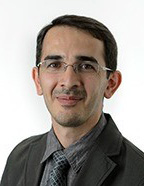Sustainable development, energy network decentralization, and the critical role of energy storage
Date: 2022/04/06 – 2022/04/06
Academic Seminar: Sustainable development, energy network decentralization, and the critical role of energy storage
Speaker: Dr. Kaveh Khalilpour, University of Technology Sydney (UTS), Australia
Time: 9:00 a.m.-10:00 a.m., April 6th, 2022 (Beijing Time)
Location: via Zoom
Abstract
We have made a long journey from the old decentralized communities to today’s tightly centralized and integrated social and physical networks. The fundamental idea behind technological centralization was the utilization of the “economy-of-scale” for affordable products and a better lifestyle. Around two centuries after the centralization wave, we have learned today, at least in the energy context, that over-centralization moves the network away from optimality and fails also to provide fair service. It has also contributed to the climate change crisis. The energy network decentralization movement has just begun with associated opportunities and challenges. Inventory or storage is an essential component of any decentralized network. This talk will give an overview of energy network decentralization and the various roles of energy storage on the supply and demand sides.
Biography
 Dr Kaveh Khalilpour is an Associate Professor in the Faculty of Engineering and IT, University of Technology Sydney (UTS), Australia. He is an interdisciplinary academic in the area of sustainability and energy informatics. His key expertise lies in the application of optimization and decision-making algorithms for addressing the emerging problems in the net-zero-emission transition. Over the last decade, his research has been majorly focused on the integration of various energy storage types with electricity and gas networks as a necessity of network decentralization and high renewable technology uptake. He has published two books on energy systems integration including “Community Energy Networks with Storage” and “Polygeneration with Polystorage for Chemical and Energy Hubs”. In these books, he has mathematically shown the positive impact of cooperation on the reliability of microgrids, stability of macrogrid, and the reduced emission footprint of the delivered energy.
Dr Kaveh Khalilpour is an Associate Professor in the Faculty of Engineering and IT, University of Technology Sydney (UTS), Australia. He is an interdisciplinary academic in the area of sustainability and energy informatics. His key expertise lies in the application of optimization and decision-making algorithms for addressing the emerging problems in the net-zero-emission transition. Over the last decade, his research has been majorly focused on the integration of various energy storage types with electricity and gas networks as a necessity of network decentralization and high renewable technology uptake. He has published two books on energy systems integration including “Community Energy Networks with Storage” and “Polygeneration with Polystorage for Chemical and Energy Hubs”. In these books, he has mathematically shown the positive impact of cooperation on the reliability of microgrids, stability of macrogrid, and the reduced emission footprint of the delivered energy.
